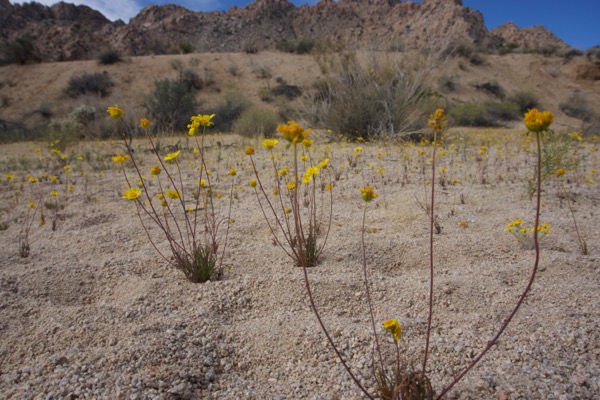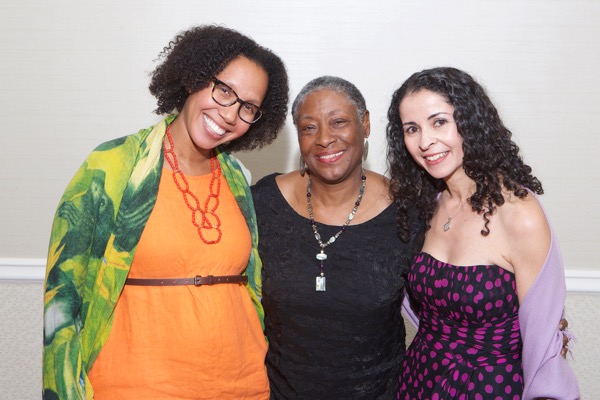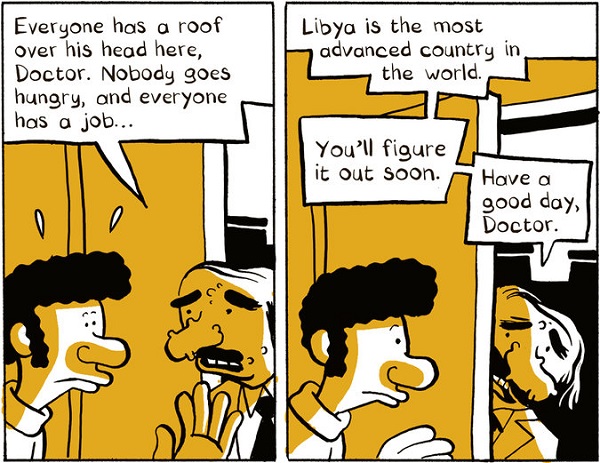Category: personal

I spent the holiday season holed up in a cabin in Sun Valley, Idaho, trying to get some rest and catch up on sleep. I’ve been struggling with insomnia for a while now, and my schedule hasn’t helped: in the last six months, I traveled to Palestine and Israel for a literary festival; gave talks in North Carolina, Washington, DC, and upstate New York; taught fiction at the Bread Loaf Writers’ Conference; and took part in the Aké Fest in Abeokuta, Nigeria. I’ve also written my regular column for The Nation and contributed essays to the Los Angeles Times on literature and to The New York Times Magazine on identity politics. But the insomnia has also given me hours and hours and hours in which to think about my new novel. I’m fairly obsessed with it, with its characters and their troubles, so I love spending time in their company. Still, the sleeplessness hasn’t been great for my health and, given what the Trump presidency is sure to bring on the political and social level, I’m determined to adopt a better routine in order to be better prepared for the fight that lies ahead.

What a busy spring this turned out to be. For the last two months, I’ve been working and traveling almost constantly. But somehow I’m making steady progress on my new novel. I’ve also written several columns for The Nation, on subjects such as the Cologne attacks, cries of political correctness, and the rise of the far right amid fears of change. In March, I joined the L.A. Times Book Review as one of its ten critics-at-large. And last month I found out that I was awarded a Guggenheim Fellowship. I can’t wait for summer, when I’ll have more time (to work some more!)
Photo: Spring flowers in Joshua Tree.
I spent the last twelve weeks working on my new novel and reading manuscripts for literary prizes I’m judging. But I’m about to hit the road again, with appearances in Portland, Bend, Los Angeles, Boca Raton, Ann Arbor, Rochester, New York, and elsewhere. Details are posted on the Events page.
I’m also thrilled to share with you the news that I’m joining The Nation as a columnist this year. The official announcement is here. And here is my first column, a reflection on what Trump means for the country, especially for two communities rarely talked about in the same breath: Muslims and veterans. Here is how the column begins:
Whether Donald Trump will win the Republican nomination, no one can tell—but what’s already clear is that he’s brought fascism back into the mainstream. At his rallies, Trump promises to make America great again by pouring scorn on women, Mexicans, African Americans, Asians, immigrants, LGBT people, the disabled, his opponents, and reporters who dare to criticize him. Every time he comes up with a new insult, his supporters whoop and cheer, seemingly confident in the belief that they are not now, nor would they ever become, one of his targets. Lately, he has taken to picking out individual protesters—a Black Lives Matter activist, a Muslim woman, a Sikh man—and offering them up to the jeering crowd, before having security escort them out. The message is unmistakable: There is no room at these gatherings for anyone who isn’t white and Christian. A Trump rally is nothing more than a hate-in.
In other news, Lionsgate optioned The Moor’s Account for a TV series. (Very exciting!) I will, of course, post updates when I have them. The novel has also been selected for the March 2016 Book of the Month Club. You can watch Craig Ferguson recommend it on a video on their website.
This has been an exceedingly bloody and difficult week. In order to make sense of it, I did what I always do: I wrote. First was an op-ed in The Nation magazine. Here’s how it begins:
What happened in Paris on November 13 has happened before, in a shopping district of Beirut on November 12, in the skies over Egypt on October 31, at a cultural center in Turkey on July 20, a beach resort in Tunisia on June 26—and nearly every day in Syria for the last four years.
The scenario is by now familiar to all of us. News of the killings will appear on television and radio. There will be cries of horror and sorrow, a few hashtags on Twitter, perhaps even a change of avatars on Facebook. Our leaders will make staunch promises to bring the terrorists to justice, while also claiming greater power of surveillance over their citizens. And then life will resume exactly as before.
Except for the victims’ families. For them, time will split into a Before and After.
The piece was reprinted in Internazionale in Italy, and in The Age in Australia. Thank you to all who have written me or shared this piece online. I also wrote a personal essay for The New York Times Magazine, this time about ISIS’s goal of eliminating “the gray zone” of coexistence. Here’s an excerpt:
As part of its efforts to spread its message outside the territory it controls, ISIS puts out an English-language magazine, Dabiq, which can be found online. In February, Dabiq featured a 12-page article, complete with high-resolution photos and multiple footnotes, cheering the terrorist attacks of Sept. 11 and claiming that they made manifest for the world two camps: the camp of Islam under the caliphate and the camp of the West under the crusaders. The article ran under the title “The Extinction of the Grayzone.” The gray zone is the space inhabited by any Muslim who has not joined the ranks of either ISIS or the crusaders. Throughout the article, these Muslims are called “the grayish,” “the hypocrites” and, for variety, “the grayish hypocrites.”
You can read the essay in full here. I’m thrilled to see it find so many readers.
Lastly, I should mention that I’m one of the signatories of this open letter to Congress on the refugee crisis: Do Not Cede to Fear. Please share. Please sign.

I’m thrilled to report that The Moor’s Account has won the Hurston/Wright Legacy Award in fiction. I was not expecting the novel to take the prize—there were so many great books in consideration—but it was a special treat to see it being recognized at the Washington, DC gala. The other two finalists were Tiphanie Yanique (picture above, left) and Roxane Gay.
In other news, I had a new essay on the theme of ‘unforgettable meals’ in The New York Times Magazine this week. Here’s how it starts:
Moha, who wanted to be our guide, said it was an easy hike to the Bridge of God. But he looked about 15 and spoke in a timid voice that made me doubt how easy it would really be. We were at the trailhead in Akchour, a small village nestled in the Rif Mountains in northern Morocco. ‘‘How long will it take?’’ my daughter asked.
I translated her question into Arabic for Moha. ‘‘It depends how fast we walk,’’ he replied. ‘‘With small children, three or four hours.’’ The adults in our party were eager to do the hike; the children, not so much. Something is always lost in translation, but as Salman Rushdie once put it, something can also be gained. ‘‘Only a couple of hours,’’ I said in English.
You can read the rest here.
I’ll be closing my fall tour with an event in Santa Fe, New Mexico, where I’ll be in conversation with the novelist Aminatta Forna for the Lannan Foundation. Tickets for the event are available here.
(Photo credit: Don Baker / Hurston Wright Foundation.)

What a busy couple of weeks! I’ve been traveling, talking, and teaching almost nonstop. I’m enjoying it tremendously, but I do long for the end of the year, when things will quiet down a bit. In the meantime, I wanted to share my review of a new graphic memoir by Riad Sattouf, a former cartoonist for Charlie Hebdo. Here’s how it closes:
Already a success in France, “The Arab of the Future” will do little to complicate most people’s perceptions of Libya or Syria. Life in both countries seems like a living hell, with no moments of relief or pleasure. But this book also has occasional flashes of beauty. When Abdel-Razak comes across a mulberry tree in Tripoli, the taste of its fruit, like that of Proust’s fabled madeleine, takes him back to the carefree days of his childhood, days when the future was still full of possibility.
You can read the full review in the New York Times Book Review. Let’s see, what else? I will be on the fiction faculty at the Bread Loaf Writers’ Conference in Middlebury, Vermont, next August. Register early! I am judging the PEN/Bellwether Prize, with Kathy Pories and Brando Skyhorse. Rules and eligibility are posted here. And I found out that I’ve been included in a list of the world’s 500 Most influential Muslims. I’ll raise a glass to that!
Photo credit: From The Arab of the Future via The New York Times.



